Dear Job Seekers
Dear Job Seekers

Dear Job Seekers
I love working with students and recent graduates:
- Because they don’t alway know “the right way™” they often find fresh solutions to old problems that are more efficient and flexible than what is traditionally out there.
- Similarly, they always keep me challenged with the latest and greatest technology and practices being used and prevent me from continuing to use what I’m comfortable with.
- Sharing my ideas out loud with people willing to listen forces me to actually think about the details in the same way as talking through problems with a friend only to solve your own question.
- They often remind me to go back to the basics, to the core stuff I often forgot a while ago when I focused narrowly on the details of my job.
A few weeks ago I had a great opportunity via a friend and recent college graduate asking me to review his resume to provide feedback. He’s a talented guy who has done some great work but just wasn’t making progress on the job front. I really wanted to help. What needed to change on his resume to get him hired?
As a I thought about it I knew there was much more to it than that. A resume is just one part of the picture, just one opportunity to sell potential employers on why you are the best person to meet their needs. And that is they key feedback I gave my friend, and I’m giving to all of you on the job hunt: sell employers on why you are the best person to meet their needs.
My Feedback
My advice is as follows (see if you can pick up on the theme):
Resume: Focus on results, not actions.
Let’s talk about open heart surgery.
I’m not very good at it. Straight up, I have very little medical knowledge. With almost 100% certainty I would kill everyone who went under my knife.
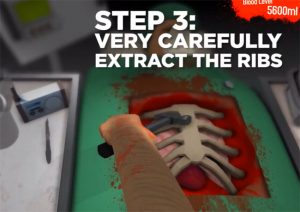
The little medical experience I do have I got from video games.
But if I was in some crazy situation, possibly something out of a horribly written movie, and a gun was pointed to my head and I HAD to perform open heart surgery… well I could do it. I could give it a go. You could too. In a way I guess you and I are two extremely inexperienced, unqualified, TERRIBLE heart surgeons*.
My point is that everyone can say they did stuff on a resume, but not everyone can claim they got great results. In your resume you want to focus on the results you attained, not just the actions you did each day. Let’s run through some examples:
Instead of…
“Worked the cash register, assembled burgers, and operated the frier at my local fast food joint”
– use –
“Received the ‘employee of the month’ award 5 times for exemplary customer service”
See what I mean? Instead of…
“Guided management and development with weekly meetings with Leads, Gantt Charts, and End of Sprint Reviews for four multi-discipline teams of 6 to 13.”
– use –
“Utilized project management best practices, including facilitating weekly meetings, dependency schedules via Gantt charts, and Scrum, to ensure our four multi-discipline teams of 6 to 13 people delivered all projects within schedule, quality, and budget.”
Let’s look at another example. Instead of…
“Worked with Jenkins and python to kickoff automated product builds for multiple platforms.”
– use –
“Improved our build pipeline dramatically getting our team from producing one build every four weeks to four builds every day- drastically increasing quality, increasing stability, and reducing feature dev time.”
Whom would you hire? The person who just did stuff, or the person who was successful at what they set out to achieve? Part of it is that you can’t actually fit all of the “stuff” that made you successful into one line, some of it is hard to quantify. But calling out results demonstrably shows that you had all the right stuff to be able to get the positive outcome. Someone had a need, you delivered.
Some of you may be thinking that the technical stuff, including those buzzwords “Jenkins” and “Python” are pretty important. It’s true that they are important to certain extent; many search engines and recruiting tools hone in on them. Without those tags your resume may not come up as often in recruiter searches. You have some options:
1) Include them in your text but still focus on the results. For example: “I used X and Y to accomplish Z.”
2) Simply throw those tags under a “Skills” or similar section.
At any rate, once you get the hiring manager interested and they are talking to you, you’ll have plenty of opportunities to deep dive into how you used Jenkins, Python, and all your awesome technical abilities to kick total ass.
Cover Letter: Do more than tell me who you are, tell me why you are the best person to meet our challenges.
I often see cover letters that go along the lines of “Here’s who I am and what I love doing. Give me a chance!” Awesome. I’m really glad you played video games as a kid and now you’re out to fulfill your lifelong dream to be a game developer yourself. But how do I know you’ll be able to make games that other people will want to buy and play, let alone making them better than the other job candidates?
Look, I have a challenge that I need someone to make go away. That’s why I’m willing to spend a lot of my team’s money hiring a new team member. I love being able to give recent grads their first shot at the game industry, it’s a lot of fun, but I’m definitely not going to hire a person just to give them that shot. I’m going to hire someone because I need their help.
Bad: Just talk about what you want and ignore the prospective employer’s interests.
Good: Talk broadly about the challenges their industry is facing and how you’ve met them in the past.
Amazing: “I met Kelly at the industry conference last week and she shared with me some challenges that your business is facing. I LOVE these sorts of challenges because not only are they solvable but they can also be turned into great opportunities for growing your business. Here’s an example of what I’ve done at my past company that completely turned our project around and drove us to success…”
Not only does that last one speak to exactly the issues you know your prospective business is facing but it sets you up as the expert to solve those issues. You’re even turning it into a positive experience! And not only that, but you’ve already established a relationship with the company.
Look, I get it. You’re looking for a job and you’re sending out the resume and cover letter as widely as possible. You haven’t met “Kelly” at that industry conference for every place you’re applying. The point is though, that the more you know about the company you are trying to get a foot in the door at, and the more you can set yourself up as the person best suited to deliver on their needs, the more likely you are to get that job.
The (Phone) Interview: Show them.
Are you seeing the overarching theme here? Show them that you are the solution! The phone screen or in-person interview is a great opportunity to do just that!
If I had to name just one tip I’ve found to be the most useful when job hunting, it’s asking my interviewer what their biggest challenge is.
Often times what employers are really looking for gets lost in a long bullshit list of job posting credentials and qualifications needed. Their job posting might look something like the following:
Project Manager Needed
Hi there! We’re looking for a fun and detail oriented team member to join our crew! Do you just LOVE organizing and sorting out messes? If so, you might be a great fit for our team!
Qualifications:
- Team Management Experience
- Scrum Master Ninja Guru
- Excellent communication skills
- Track record of operating independently, demonstrating creativity, being detail-oriented, and delivering results in a highly organized manner
- Solid experience in fostering seamless cross-functional working relationships in medium to large organizations
- Experience with Microsoft tools, JIRA, Trello, Photoshop, and Spotify.
- 5 years working with SQL queueries
- 10 years experience in public speaking
- 3 published books
- Can bowl a 140 or above
What they really mean is:
Holy fucking shit! Our project is burning down! We are five months past our initial projected ship date and we can’t even get the product to build to platform. Engineers are quitting every week because they are tired of working massive overtime. Our CEO says we need to get our house in order in a month with updated timelines we actually stick to, as well as improving overall quality significantly, or our project is getting cancelled and we’re all fired!
Is there anyone out there that can help us turn this ship around?!!! ANYONE?!
When they ask you if you have any questions for them, ask “what are your biggest challenges or problems right now?”. First. you’ll cut right to the matter of what and why they need help and whether this is the challenge you want or can handle. Second, and I can’t emphasize this enough, you will get BIG POINTS if you can clearly explain how you’ll meet those challenges. Your interviewer will go back to their team and say “hey, I think this guy can make our problem go away!”. Provided you didn’t set off some red flags by telling them about that body buried under your porch you will have a great shot at getting the job.
One final point here I’d like to add: sometimes you learn some really interesting things about their organization that may make you reconsider applying. For example, once while applying for an Engineering Management position I asked everyone I interviewed what the biggest challenges facing the team were and what they needed most out of this job. What became clear was that there was a wide gap between what leadership thought the team needed most and what the team actually said they needed most- they were pretty conflicting items. It seemed clear to me that the team was much more in tune with their own needs and that their real problems were beyond what I could solve or cared to get involved in.
The Portfolio: Use it to stand above the rest, or scrap it because it’s hurting you.
Another tool at your disposal to help you stand out from the crowd is the portfolio. What’s the one job of the portfolio? Yell it at your screen with me here: TO SHOW OTHERS YOU ARE THE SOLUTION TO THEIR PROBLEMS!!!
If you didn’t yell at your screen right there, I’m very disappointed in you. I feel like I’m beating a dead horse right now, at this point we should be on the same page. Those of you who yelled can keep reading, those of you who didn’t should probably go back to the start of the article and reread the whole thing.
For you yellers, I like portfolios for two big reasons:
1) It shows me what you can do rather than you telling me what you can do. Lots of people can develop software, most cannot write good software.
2) On the job seeking side, it gives me a lot of tools to sell myself. I could show you examples of my games with images, I could let you play the games, or I could just have a 3 minute demo reel that guides you through my best stuff.
You don’t have to have a portfolio, but it’s an opportunity to sell yourself and stand above the rest of the crowd. Some people, typically those who have already been in the industry a long time, likely already have many other ways to sell themselves that make a portfolio unnecessary. They may have worked on/at very popular projects or companies that everyone knows; the ‘ol “holy crap, you were the animation director for Pixar?!” Others may already have a lot of friends they’ve already worked with in the past currently with their prospective employer. They’ve already got an in, friends who know the quality of their work and likely referred him or her in the first place. If you are in either of the two above categories, you probably don’t need this article.
If a good portfolio can work to sell you, a bad one can work against you and discourage future employers. I’ve seen many poor portfolios with broken links, misleading navigation (how do I find the projects?), or lackluster content pieces. I’ve seen portfolio project pages for game projects that don’t include any pictures, videos, or demos- just a short description of the project. How does a half finished or incomplete portfolio sell me that you’re better than the rest? The answer: it doesn’t. It tells me you couldn’t meet your own needs and so I can expect you can’t meet mine.
Never Forget Your ABC’s
I shared all of this feedback with my friend, and well, it’s a lot of feedback. And my friend responded just as anyone, including myself, would respond when confronted with an overwhelming amount of feedback that demanded changes: he got frustrated. It was a lot to handle and as the conversation progressed, I could tell it wasn’t just the feedback that was bothering him; his was a frustration borne from years garnering as much experience as he could through a college education only to face a stiff hiring environment upon graduation. After months of no forward motion things start to look a little disheartening.
“I feel like I did everything I possibly could in college and definitely delivered above my peers. I absolutely considered my performance as top tier. But I don’t have real industry experience and I get the feeling as soon as my employers see that on my resume, into the trash it goes. How am I supposed to get that experience if nobody gives me a chance?”
I believe he is top tier. Not because his resume, cover letter, or portfolio convinced me, but because I happen to be good friends with one of the directors of the game program he graduated from who confirmed as much. But, as it is, unless my friend’s past instructor is also good friends with every prospective hiring manager out there he’s not going to have much luck.
It’s a tough world out there trying to get a job and for you recent grads out there, your frustration is valid. Students are graduating out of college programs bright eyed expecting jobs waiting for them and it’s just not like that. When it comes to a college education, it can seem like the advertising doesn’t exactly match the product. That’s terrible and it sucks. Sorry about that.
Here’s the thing though, and it may seem harsh but it’s important: nobody gives a shit. Seriously, nobody cares if you can find that job you want or not.
Your ability to land your dream gig is going to land squarely on how well you can convince others that you’ve got what they need. If you can sell me on the idea that you are the best option to make my problems go away then you will get a job. If you can’t, you won’t. So sell that shit. Close those sales.
Always
Be
Closing
In case you’re unfamiliar, I’ll let Alec Baldwin from his legendary Glengary Glenn Ross scene better explain the concept than I ever could (NSFW if you’re office is uncomfortable with F bombs):
[vsw id=”elrnAl6ygeM” source=”youtube” width=”640″ height=”360″ autoplay=”no”]
For those of you at work, can’t watch videos, or are so inept with technology you couldn’t get the video to play, I’ll share with you some of the dialog:
Blake (Alec Baldwin): That watch cost more than your car. I made $970,000 last year. How much you make? You see, pal, that’s who I am. And you’re nothing. Nice guy? I don’t give a shit. Good father? Fuck you — go home and play with your kids!! (to everyone) You wanna work here? Close!! (to Aaronow) You think this is abuse? You think this is abuse, you cocksucker? You can’t take this — how can you take the abuse you get on a sit?! You don’t like it — leave. I can go out there tonight with the materials you got, make myself fifteen thousand dollars! Tonight! In two hours! Can you? Can you? Go and do likewise! A-I-D-A!! Get mad! You sons of bitches! Get mad!! You know what it takes to sell real estate?
(He pulls something out of his briefcase)
Blake: It takes brass balls to sell real estate.
(He’s holding two brass balls on string, over the appropriate “area”–he puts them away after a pause)
Blake: Go and do likewise, gents. The money’s out there, you pick it up, it’s yours. You don’t–I have no sympathy for you. You wanna go out on those sits tonight and close, close, it’s yours. If not you’re going to be shining my shoes. Bunch of losers sitting around in a bar. (in a mocking weak voice) “Oh yeah, I used to be a salesman, it’s a tough racket.” (he takes out large stack of red index cards tied together with string from his briefcase)These are the new leads. These are the Glengarry leads. And to you, they’re gold. And you don’t get them. Why? Because to give them to you is just throwing them away. (he hands the stack to Williamson) They’re for closers.
I love that scene. I watch it every few months and every time I get super fired up. I am ready to sell, I am ready to close. But for many people, maybe even most of you, you’re going to watch that video and think to yourself “wow, Alec Baldwin is such an asshole! He’s so smug and greedy, I wouldn’t want to be like that guy. I’d quit that job in a heartbeat!”
You may have the skills and be the most qualified person for the job, but if you can’t sell yourself, if you can’t close, you’re not going to get the job. Maybe you don’t need a portfolio, maybe you just need great relationships with the team you want to join. Maybe you don’t need a college degree, maybe you just need a lot of passion driving you to learn and experiment on your own. Maybe you don’t need that game designer job right off the bat, maybe you develop games as side projects (then publish them) to build up the experience and prove that you’ve got the chops.
You do what it takes to show the world you’ve got what it takes.
If your portfolio is terrible and you need to sex it up a little bit, learn some HTML, CSS, and JavaScript. Here’s a book that can get you started; I don’t care if you have a literature degree and no programming experience. Want to be a web developer? Start making websites for friends and anyone you can convince to give you some money for it. Need connections? Go to conferences or popular industry communities online and elsewhere and start meeting people. Do what you need to do. Fucking CLOSE already.
My first programming gig was customizing accounting software built on top of Microsoft Access using VBA. I heard about the job from a friend and immediately called up the business owner. The conversation went something like this:
Prospective Employer: “So, do you have much experience with Microsoft Access and VBA?”
Me: “I’ve never used either one. I hadn’t even heard of VBA before this job posting.”
Prospective Employer: “Okay…”
Me: “If you give me 3 days over this weekend I will drive out to your office afterwards and you can thoroughly test me on Access and VBA and I’ll show you what I can learn in that time.”
Prospective Employer: “Shit, I’ll bite. See you Monday!”
And I immediately drove an hour to the nearest Barnes and Noble and bought two hefty books on MS Access and VBA. I studied non-stop for those three days. On Monday, I drove the two hours out to his office and got thoroughly grilled on every aspect of the software. I got the job. Don’t get me wrong, I was not a good VBA programmer. I was slow and made all kinds of mistakes as I ran through building features and reports. But I got that job because the business owner needed an energetic student programmer with gusto who could ramp up and get working with customers ASAP- I convinced him that I was his guy.
People everywhere need help. Can you help them?

Searches StackOverflow for “first day on job writing accounting software”…
* Does not apply if you are an actual professionally licensed heart surgeon.


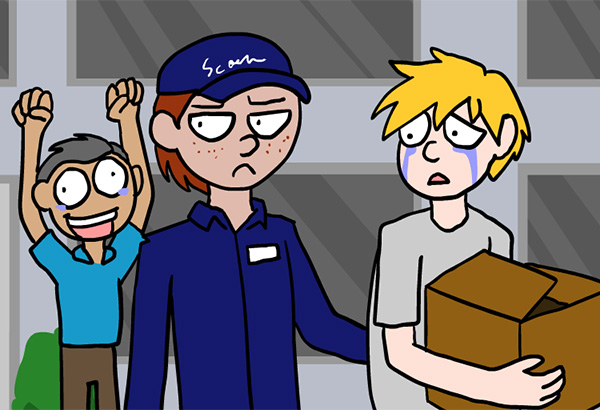
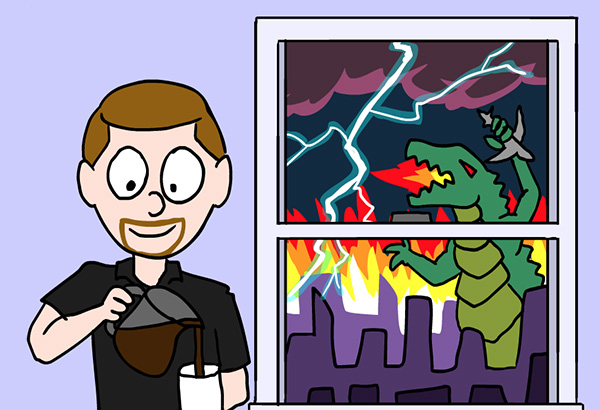

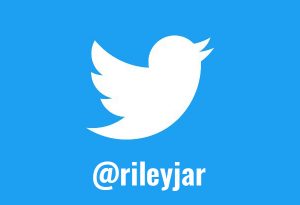
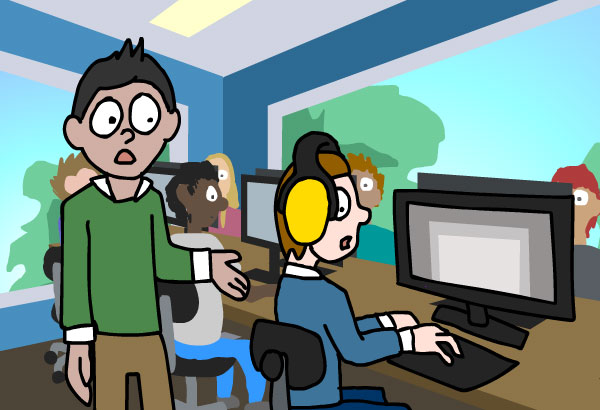

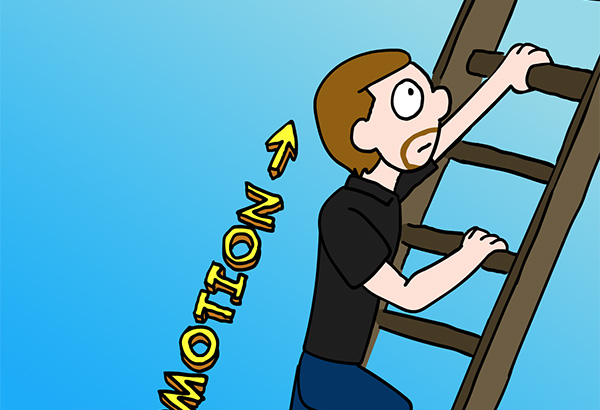
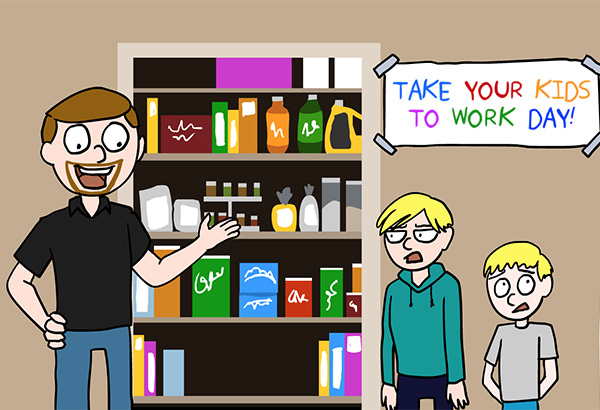
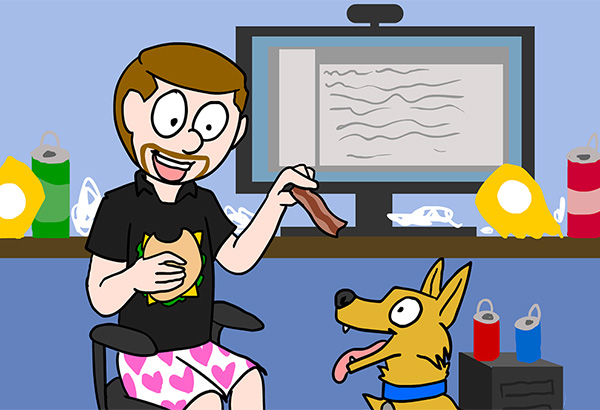
Thanks for this you are very helpful!
Hi Jared,
my name is Pavel, now after reading your Job Seekers post I even scare to call or speak with you, but I can say with confidence – it’s the best Job Seekers article I’ve read or seen for the last month, my appreciation, 100% helpful.
Hey Jared, love the way you wrote this article! love the tips too! I’m sharing this with my friends (unfortunately not new grads).